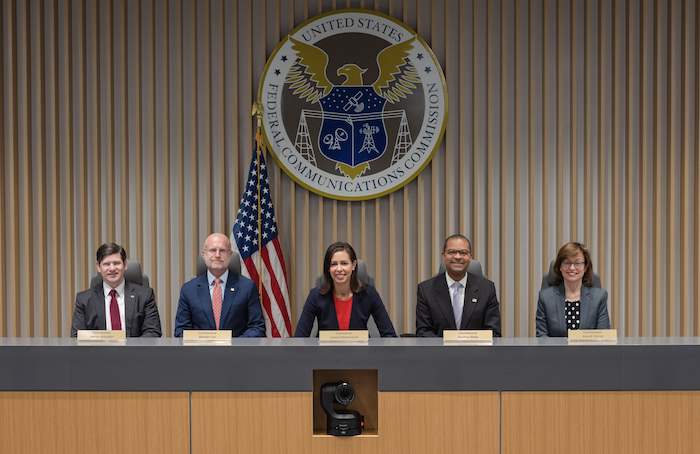Observers believe FCC Commissioner Bendan Carr’s Project 2025 chapter could foreshadow what a Trump Commission may look like should he be re-elected as President. Project 2025 is a conservative plan to remake the federal government advocated by Trump allies, though he has sought to distance himself from the proposal.
The Heritage Foundation, which spearheaded the initiative, has said it does not speak for Trump or any candidate, reports The Washington Post. The project is relevant as the Republican National Convention meets in Milwaukee this week.
Carr is the author credentialed for the portion on the FCC, though he writes that the chapter preparation was a collective effort. “While this chapter identifies certain issues on which the contributors did not all agree, the author alone assumes responsibility for the content of this chapter.”
Chapter 28 calls for shifting the agency’s focus to reign in tech companies like Google (NASDAQ: GOOG) and Facebook (NASDAQ: META). Section 230 of the communications Act shields digital platforms from lawsuits over user-generated content.
Carr has long advocated for revamping the law on grounds that social media companies are disproportionately censoring viewpoints on the right, which many conservatives allege, reports The Washington Post.
According to the introduction, “Under a new chairman, Carr writes, ‘The FCC needs to change course and bring new urgency to achieving four main goals: reining in Big Tech; promoting national security; unleashing economic prosperity; and ensuring FCC accountability and good governance.’”
Much of what Carr advocates for in the proposal are issues he’s championed (and Inside Towers has reported on) for a while, such as doing more to ban gear from untrusted foreign-owned telecoms from U.S. communications networks. “Without FCC approval, new Huawei gear cannot be lawfully sold or used in the U.S. However, the FCC must do a better job of ensuring that its Covered List stays up to date and accounts for changes in corporate names and forms,” he writes.
Referencing the $3 billion loophole in the Commission’s Rip & Replace program, Carr advocates for a new way to fully fund the program. “A new Administration … should look first at repurposing and applying unused COVID-era emergency funds for this purpose.”
He credits the FCC for modernizing many of its infrastructure siting rules but says more needs to be done. “For instance, the FCC’s prior reforms focused on streamlining the rules for small wireless facilities,” Carr writes. “The FCC should now explore similar action for the deployment of other wired infrastructure by imposing limits on the fees that local and state governments can charge for reviewing those wireline applications and time restrictions on the government’s decision-making process.”
He advocates for Congress holding agencies accountable so that taxpayer money is used effectively to promote broadband connectivity across the nation. That means instructing those agencies to direct broadband infrastructure funds “to communities without adequate internet infrastructure instead of to places that already enjoy broadband connectivity.”
If Trump is re-elected, he would install a Republican as Chair of the agency. By being the most senior GOP Commissioner, Carr presumably would be the next FCC Chair.
Project 2025 came up during a House Energy & Commerce Hearing on the FCC budget that Inside Towers covered last week. In prepared remarks read by Debbie Dingell (D-MI), Ranking Member of the committee Frank Pallone (D-NJ) stated that Project 2025 would “destroy agencies like the FCC and the important role it plays on behalf of the public in overseeing critical services like our communication networks,” including by “consolidating power under the president.”
The FCC did not respond to a query by Inside Towers for comment.
By Leslie Stimson, Inside Towers Washington Bureau Chief





Reader Interactions